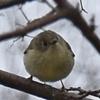Take a photo of a barcode or cover
Reviews tagging 'Body shaming'
La casa en el mar más azul. Edición especial: Edición especial con cantos tintados by T.J. Klune, Carlos Abreu Fetter
351 reviews
Warming up to the main character took me over 100 pages; He reminded me of Percy Weasley.
Graphic: Child abuse, Emotional abuse
Moderate: Animal death, Body shaming, Cursing, Death, Panic attacks/disorders, Racism, Murder
Minor: Drug use, Fatphobia, Homophobia, Physical abuse, Forced institutionalization, Blood, Cannibalism, Religious bigotry, Death of parent, Alcohol
For people who are fat though, it's a lot of wincing. There is fatphobia throughout the book. Some would argue that the character becomes comfortable with their size toward the end. That is true to a point but the fatphobia is not just that of the character. It seems to come from the author. (Likely unknowingly.) The person writes the character's relationship with their weight (constant and obsessive) in ways that small people assume all fat people think about their weight. Not the way we actually do.
I would recommend it with a caveat to young LGBTQIA+ friends. I would not recommend it to my friends in fat bodies.
Graphic: Child abuse, Fatphobia, Violence, Xenophobia
Moderate: Body shaming
Graphic: Child abuse
Moderate: Body shaming, Fatphobia
Graphic: Child abuse, Xenophobia
Moderate: Body shaming, Confinement, Fatphobia
Minor: Body shaming, Hate crime, Racism
Moderate: Body shaming, Child abuse, Confinement, Cursing, Fatphobia, Xenophobia
Minor: Violence, Death of parent
Graphic: Body shaming, Bullying
All that being said, I've also been informed that Klune was drawing inspiration from the Sixties Scoop to write this book. (The Sixties Scoop was a period from the mid- 1950s to 1980s in Canada where a series of policies were enacted that enabled child welfare authorities to take indigenous children from their families for placement in foster homes. It's estimated that about 20,000 children were taken from the communities and birth families during this time.) I did not see this while reading, though if it is a comparison Klune meant to make, it's a distasteful one. The overall tone is a self-love & acceptance fantasy, which I know does not mirror the reality so many children and families faced during that time. As a non-indigenous person I cannot speak more to this issue, so I'd highly recommend looking into those implications and reading/hearing indigenous perspectives on this book.
Based on the above fact, I have a hard time recommending this book to others. I enjoyed it immensely while reading, but find discomfort in Klune's inspirations and the possible effects, hurt, and misrepresentation there.
Graphic: Child abuse, Confinement
Moderate: Body shaming, Emotional abuse, Physical abuse, Abandonment
Minor: Death of parent
Minor: Body shaming, Child abuse, Xenophobia, Abandonment
Moderate: Child abuse
Minor: Body shaming





